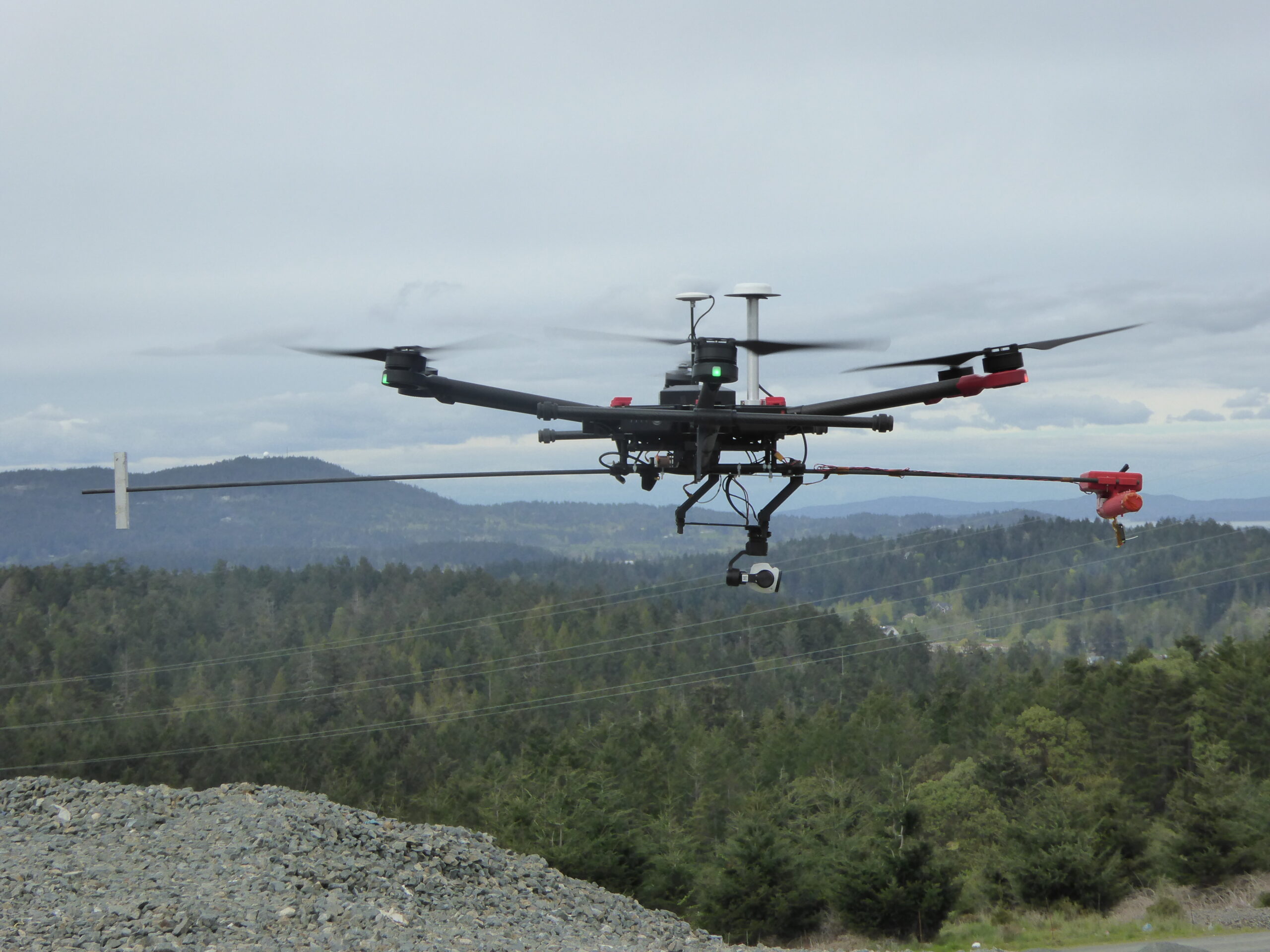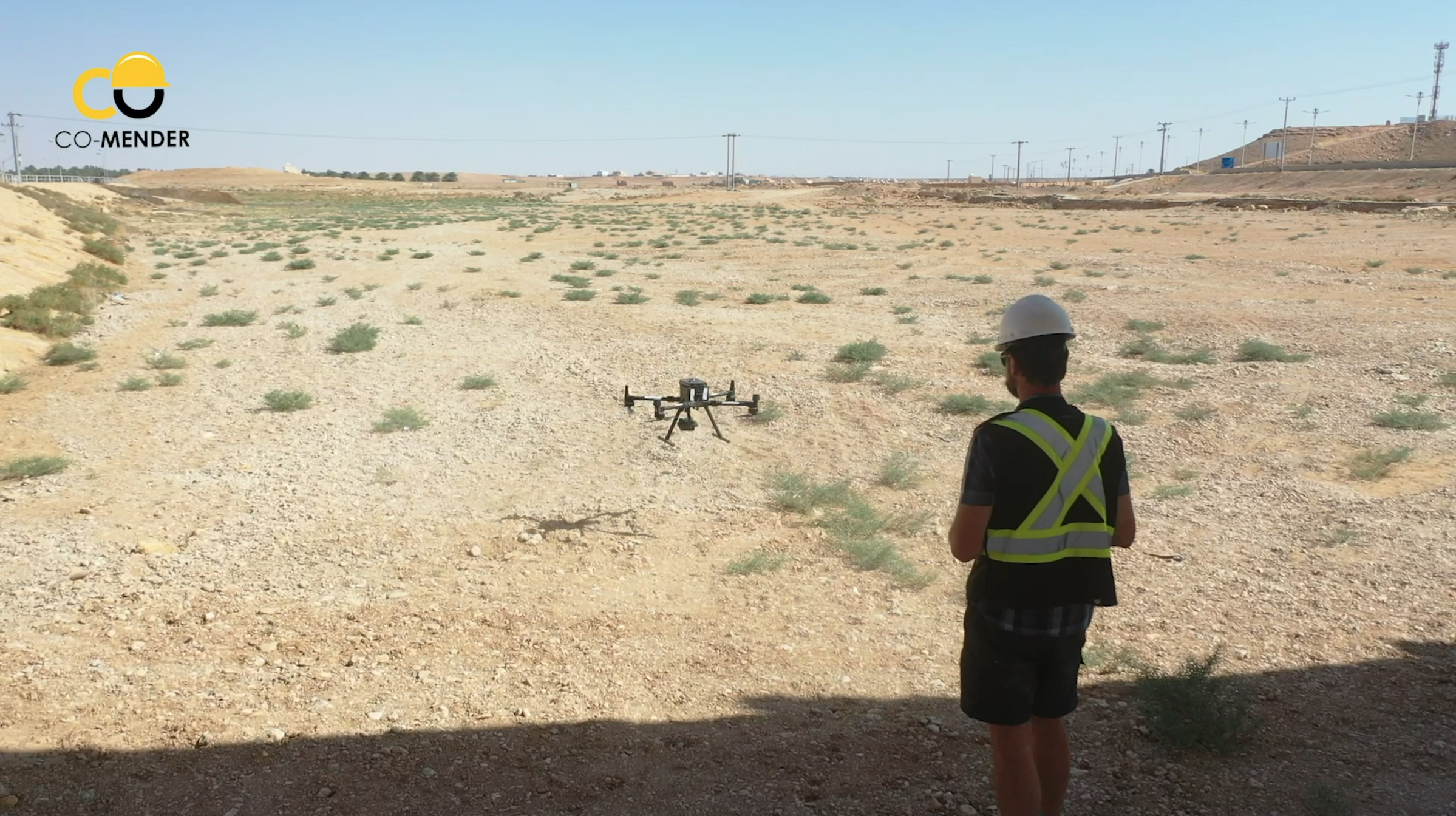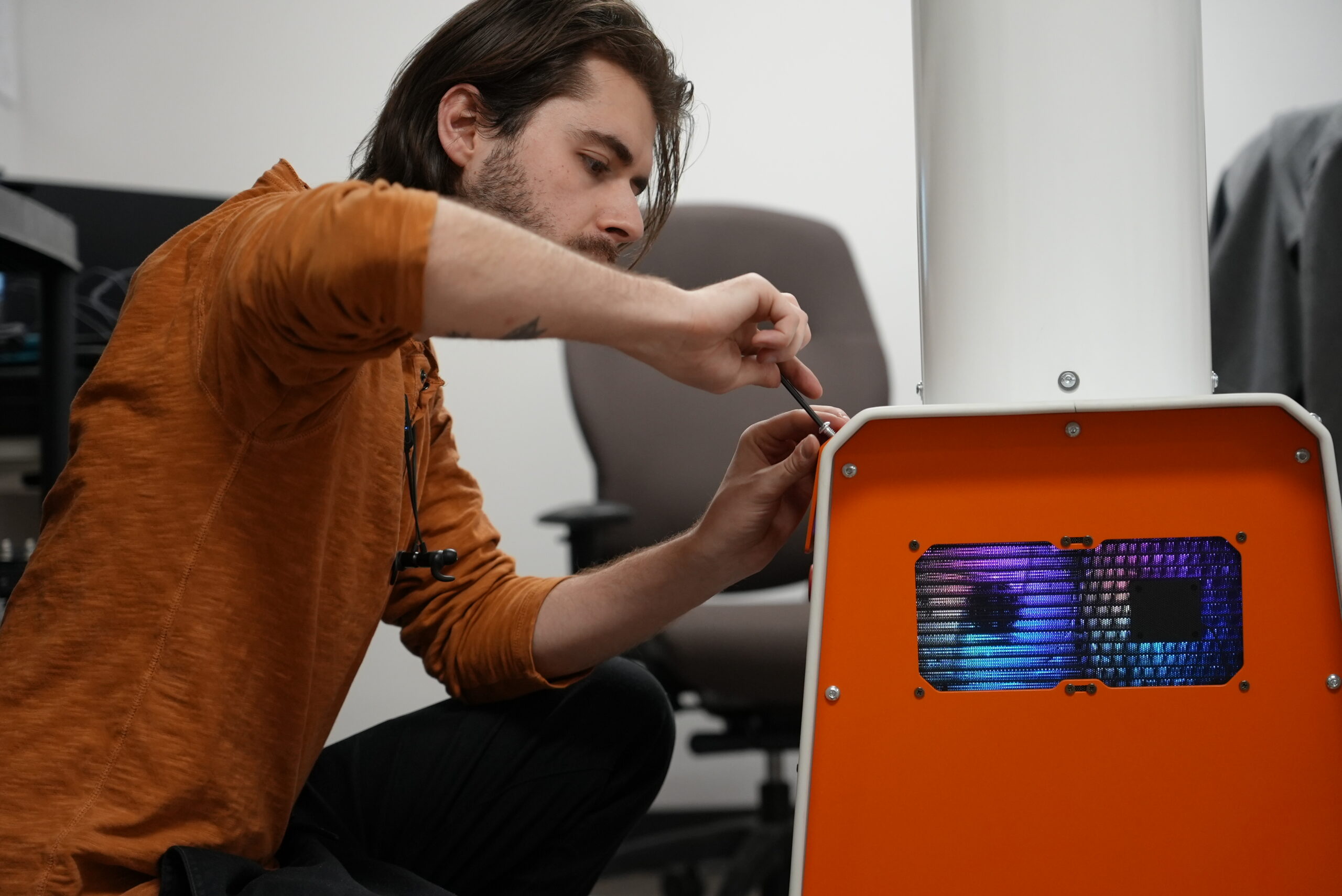By Scott Simmie
The world of drones, as you likely know, changes rapidly.
In less than a decade, we’ve gone from the first DJI Phantom (which required an optional GoPro if you wanted images) – to highly sophisticated machines capable of BVLOS flights over 4G and 5G networks. Drones today have sophisticated obstacle avoidance, multiple sensors, and can be programmed to carry out missions autonomously. They routinely create digital twins, carry out volumetric calculations, and use specialised software for anomaly and change detection.
There are even devices designed for highly specific use-case scenarios, such as the innovative Voliro – built for non-destructive testing. Drones like this require highly specific training to operate.
In other words, drones are doing a lot more than capturing RGB images these days. Newer operations often involve complex planning, operations and data analysis. And that can mean pilot training above and beyond what’s currently required for a Transport Canada Advanced RPAS Certificate.
And so we pose the question: Has the time come for micro-credentials in the world of Remotely Piloted Aircraft Systems (RPAS)?
Below: A drone operated by Aerometrix. Its specialised sensor sniffs the air for methane and other gases. It requires specialised piloting and software skills.
The status quo
At the moment, there are two nationally-recognised certifications for drone pilots in Canada. They are the Basic and Advanced RPAS Certificates, issued by Transport Canada.
“Right now the only government certification that’s offered in the drone space is for certification – and there are about 7,000 other pilots out there with that same certificate,” says Kate Klassen, a traditional aircraft pilot and instructor, as well as InDro’s Chief Flight Instructor.
In other words, there’s not much out there to differentiate a pilot’s skills; an RPAS Certificate, though useful, only tells us so much.
“It doesn’t cover the more specialized use-cases and skill sets that are needed to be hired for those really complex jobs. Until there are other recognised drone-specific knowledge certifications that you could point back to to beef up your resume, it will be challenging for those doing the hiring – and those wanting to be hired – to know what they’re getting and what’s needed.”
As a result, some pilots seeking more advanced skills (and jobs), can find themselves in what Klassen calls a “Catch-22.” How can you land jobs where you might learn some of those critical new skills if the employer won’t hire you because you don’t currently have them?
“The solution there,” says Klassen, “is additional training and credentials.”
The case for micro-credentials
The kind of training and credentials referred to above can be taught with brief but highly focussed courses – leading to “micro-credentials.” These badges of approval would be recognised by others in the industry.
And in fact, this is organically taking place already. At the British Columbia Institute for Technology, RPAS Operations Head Dr. Eric Saczuk has created and instructed two different micro-credential courses. Right now, he’s teaching “Drone Applications for an Environmental Risk Assessment.” Knowledge includes how to conduct a site survey and plan a mission, along with how to process colour, multi-spectral, and thermal drone images into data sets.
“Micro-credentials are focused, relatively short courses designed to give students access to specific, job-ready skills related to a particular industry,” says Dr. Saczuk, who has a PhD in Remote Sensing. He also sees a growing need for these courses as use-cases, technology and software become ever more specialised.
Obtaining a micro-credential (MC), says Dr. Saczuk, is beneficial both to drone operators and those doing the hiring for complex jobs.
“Having a micro-credential on your resume has the advantage of indicating to your potential employer that you are serious about continuing to upgrade and update your skills, learn new techniques, and invest in your professional development,” he says.
“It shows that you’re actively staying on top of the latest advances in your field and not just resting on your previous credentials. Speaking of which, one of the best advantages of MCs is that they are designed to ladder to other credentials such as Certificates, Diplomas and Degrees.”
Below: Dr. Eric Saczuk, who is also the Flight Operations Lead at InDro Robotics, carries out a complex drone operation for a client in Saudi Arabia. Specialised jobs require specialised skills.
EARNING MICRO-CREDENTIALS CAN BE FAST
Here’s the thing. Many drone operators who would like to up their skills are already working and it would be difficult – if not impossible – to attend a full-time or time-consuming course. In the case of BCIT, the course is designed specifically for those kind of people. The bulk of the instruction is online, with three 90-minute sessions during the work week and in-person skills instruction on Saturdays. One Micro-credential badge is earned every week for specific skills; the entire course is completed in four weeks.
“Generally, students LOVE the micro credential course!” says Dr. Saczuk.
“It doesn’t take up much of their busy day – remember, these students are usually working full- or part-time or have many other things on the go, so they don’t want you to waste their time – and we get right into the thick of it.”
Having already created two full courses, Dr. Saczuk is already looking ahead to developing more.
“I can envision developing future courses delving into high-precision photogrammetry using real-time kinematic positioning and ground control points,” he says.
“Another one could be tailored to First-Responders, disaster monitoring and/or search-and-rescue. We could put one together focusing solely on the use of thermal imagery to building envelope inspection or how to use multi-spectral imagery to map invasive species…as you can tell, there’s no limit to where this technology can be useful!”
NOT JUST DRONES
Drones aren’t the only arena where MCs would be useful. A similar technological evolution has been taking place in the world of Uncrewed Ground Vehicles (UGVs), or ground robots. Remote teleoperations, thermal sensing, digital twins and more are now routine tasks for UGVs. In fact, construction is underway for a high-end training and testing facility at Area X.O. It’s designed to current NIST standards for evaluation and training and will be operated by InDro Robotics. (You can read more about the forthcoming facility in this post.)
Below: A CGI video of the new drone and robot advanced testing and training facility. Construction is underway, with a planned opening date of June, 2023
WHAT’S NEXT?
Well, hopefully more micro-credential courses – and a growing number of higher education facilities offering them. But how to ensure that these MC courses produce pilots (and robot operators) with more or less equal skills?
Dr. Saczuk says currently, it’s up to the creator of the course to build the curriculum. He believes this system is working well, and that core skills will be similar from institution to institution.
“I have seen other courses taught by other institutions and organization about the same topic – say thermal image analysis) and they cover very much the same topics I do in that badge,” he says.
“I feel like if the authors and instructors are fully knowledgeable in the subject, the chances of the courses being standardized is pretty high without any external framework. Perhaps this is not the best approach, but it’s just what I’ve observed from my experience.”
InDro’s Kate Klassen, one of Canada’s most experienced online drone trainers and the creator of the online drone training portal FLYY, believes there’s room for some form of standardisation. This would ensure that those earning MC badges all learn a uniform skill set.
“I see it as a set of standards, much like how the pilot certification standards are set out in TP 15263 from Transport Canada, that professionals and academics in that industry niche establish,” she says.
“There could be flexibility in what those standards require. Some might be able to be taught online or in a classroom where others will need to be an in-person skill demonstration or working with a dataset to produce specific results. At the end, graduates would receive a traceable, validated and recognized credential they can use to set themselves apart.”
Below: Those operating robots, like drones, could benefit from specialised training
InDro’s TAKE
InDro Robotics was one of the earliest Canadian companies to enter the RPAS space. In addition to our Research and Development, we’ve long been involved with training. Some of that training has been tailored for First Responders and other specialized drone operations. We take training – both internally and externally – *very* seriously.
And we believe the case for more widespread micro-credentials, along with standardisation, is the way forward.
“Drones are much more than flying cameras these days,” says InDro Robotics CEO Philip Reece. “And ground robots have become equally sophisticated. Micro-credentials can ensure that operators are not only competent, but able to fully exploit the capabilities of these devices.
“With the new facility at Area X.O coming online soon, InDro will be exploring the possibility of offering micro-credentials as part of our specialised training.”
Oh. And if you’re looking to obtain your Transport Canada Basic or Advanced RPAS Certificate, look no farther than Kate Klassen’s excellent FLYY.
copyright 2022 © InDro Robotics all rights reserved




